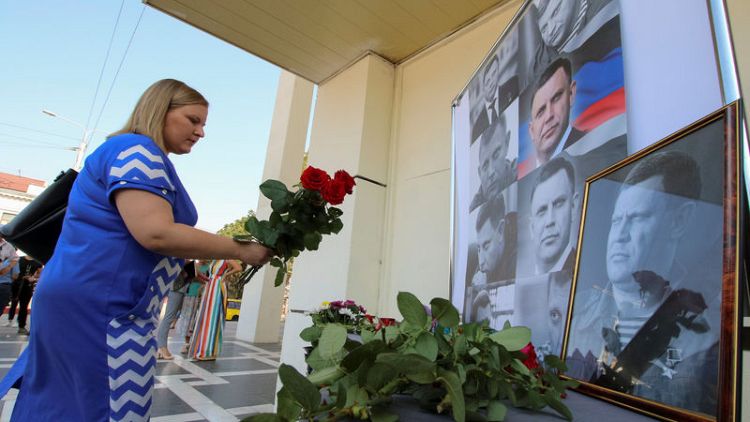BERLIN/PARIS (Reuters) - The killing of a pro-Russian separatist leader in eastern Ukraine must not undermine talks to resolve the conflict, said France and Germany, which are joint sponsors of a peace process along with Russia and Ukraine.
Russian Foreign Minister Sergei Lavrov said on Saturday further four-way Ukraine talks, known as the Normandy format, were impossible after Alexander Zakharchenko, leader of Russian-backed separatists in the Donetsk region of eastern Ukraine, died in an explosion at a cafe on Friday.
The Normandy talks led to a ceasefire agreement signed in the Belarus capital Minsk, which ended large-scale fighting in 2015, although deadly exchanges still take place across the truce line dividing government forces from separatists.
France and Germany both said on Monday that the killing of Zakharchenko made the peace process more urgent.
"The latest developments in Eastern Ukraine do not call into question the obligations of the parties under the Minsk agreements, nor the relevance of the Normandy format meetings between Germany, France, Russia and Ukraine," a French Foreign Ministry spokeswoman said. "It is precisely when tensions arise that negotiations must be made in good faith."
German Chancellor Angela Merkel's government spokesman Steffen Seibert said: "It's of paramount importance that an escalation is avoided now."
The death of Zakharchenko should not derail the peace process and Germany would stick to the four-way talks, Seibert said.
Russian-backed rebels threw off Ukrainian central rule in an armed uprising after pro-Western leaders opposed by Moscow came to power in the Ukrainian capital, Kiev, in 2014.
Ukraine and Western countries say the rebels were organised, armed and funded by Moscow, and assisted by Russian ground troops. Moscow denies intervening.
(Reporting by Michael Nienaber in Berlin and John Irish in Paris; Editing by Peter Graff)
